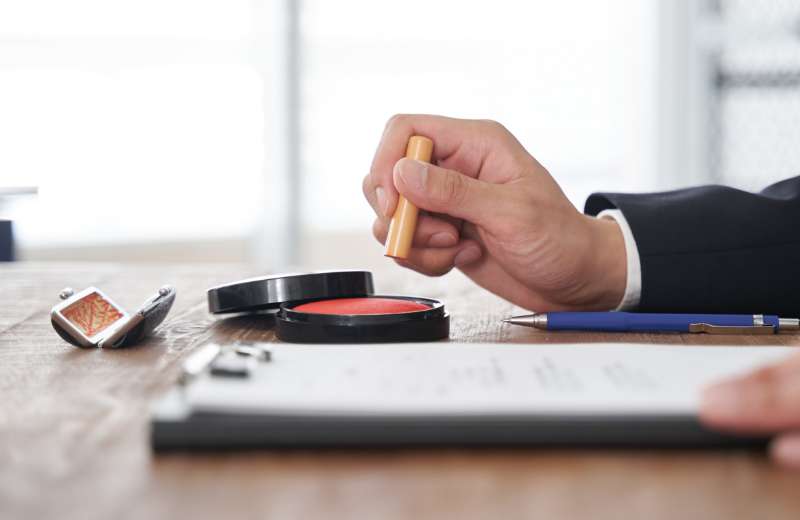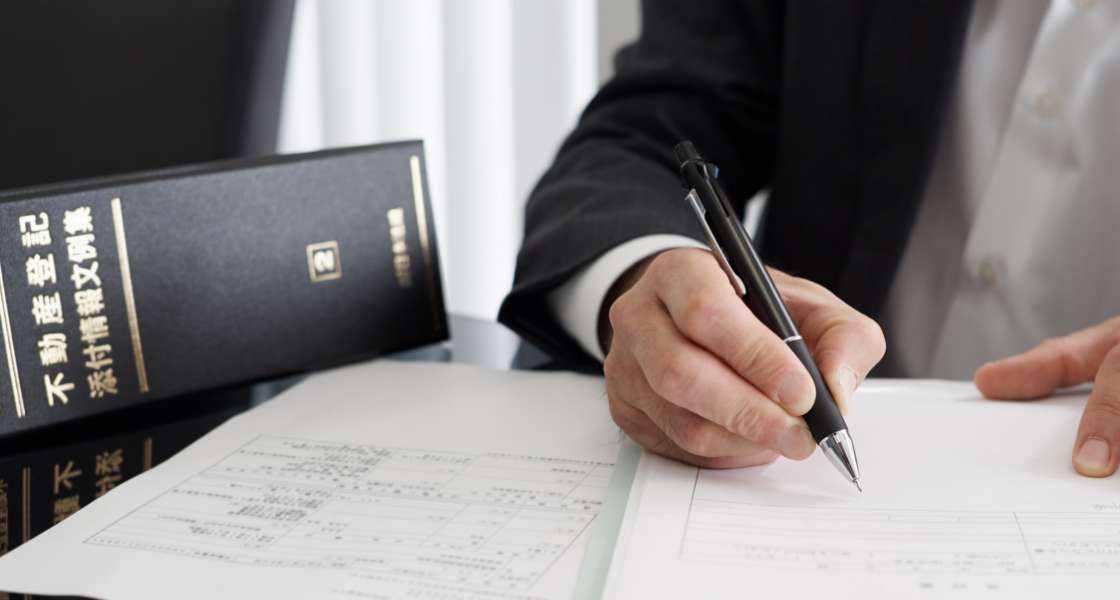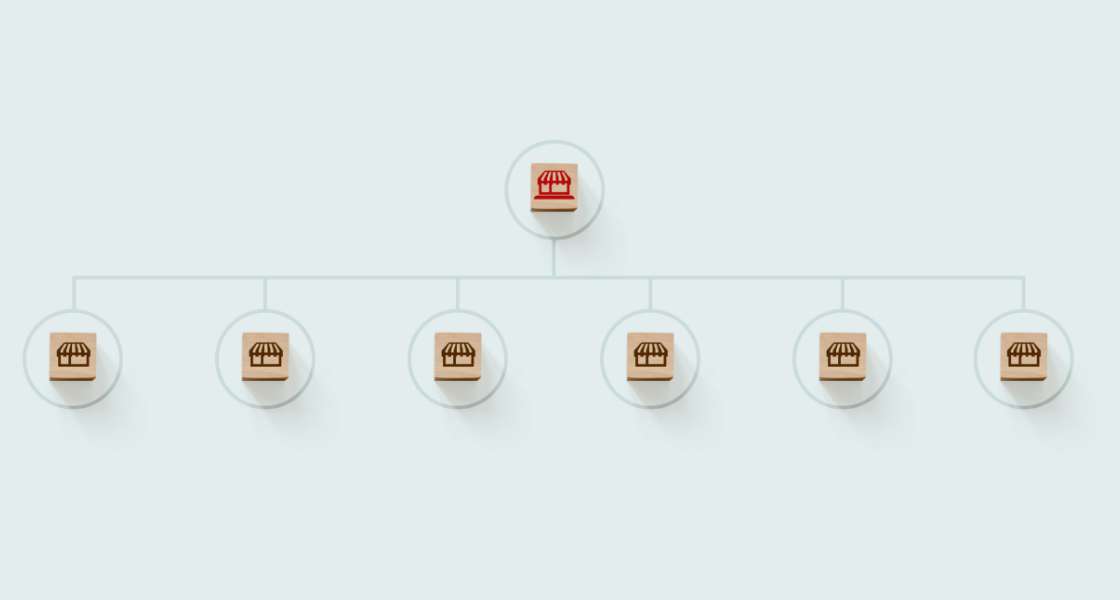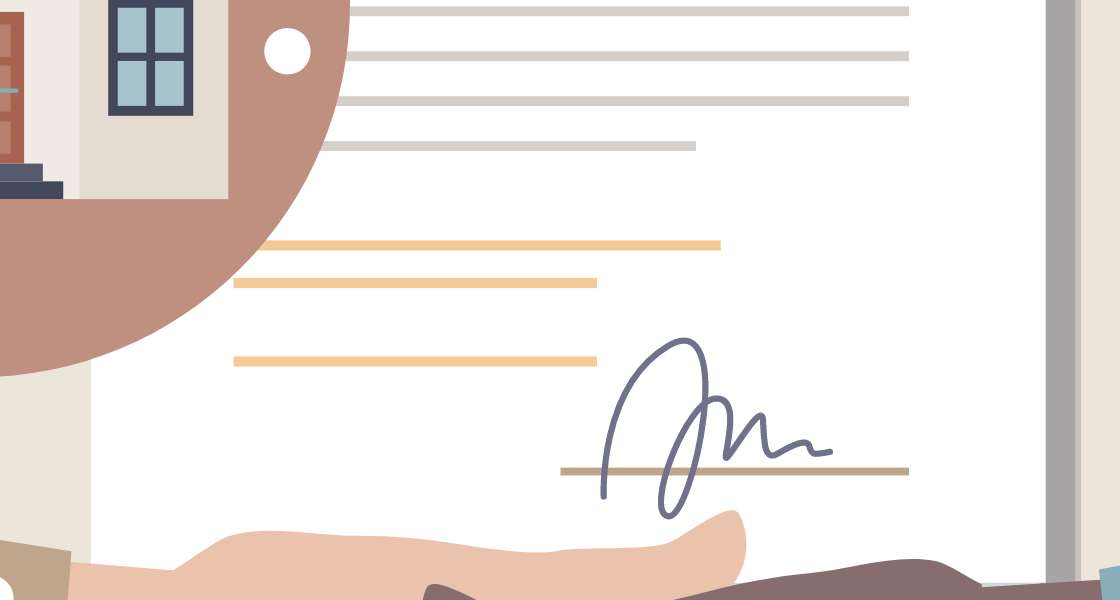Enjoying Japanese “movement” in your lifestyle.
─ Clothing, food, recreation, rest, knowledge, beauty, health, and companionship ─
Japanese sense of beauty has been cultivated over the years.
In Japan, a country rich in history and emotion the basics of daily life are based on the splendor of “savoring the seasons” and “fill your heart”.
Feel the beauty of them.
We will explain the process of living in Japan and how to purchase a house.
Table of Contents
- The Real Estate Buying Process
- Set the criteria for the desired property
- Setting the Budget
- Searching for Properties
- Property tour
- Application for Purchase and Preparation of Purchase Certificate
- Tenant screening
- Purchase Decision and Explanation of Important Matters
- Contract Execution
- Delivery of the property
- Application for real estate registration and subsequent notification as required by the Foreign Exchange and Foreign Trade Act
- Moving in
- An introduction to Japan’s confusing real estate system
- Registration of Detached Houses and Condominiums in Japan
- “Mediation” and “agency” for real estate transactions in Japan (in many countries, real estate transactions are often conducted by proxy)
- The “two-handed agency” and “one-handed agency” of real estate transaction in Japan
- “Normal tenants” and “fixed-term tenants” in Japanese real estate leasing
- Situation of Real Estate Market in Japan
The Real Estate Buying Process
1Set the criteria for the desired property
The size of the apartment or house or building and the size and scale of the floor plans.
If you will live there, think about when you would like to move in.

- Column
Forms of Real Estate Sales in Japan
The Forms of real estate sales in Japan is divided into two major types:
“Subdivision for sale” and “Brokerage property”.
- Subdivision for sale
- New condominiums and many units for sale Newly built single-family homes are many of them are in the form of “Subdivision for sale”, which are purchased directly from the real estate company or sales agent that is the seller.
- Brokerage property
- Used condominiums, used houses, and new houses with a small number of units for sale are often purchased from the seller’s real estate company, sales agent, or individual.
Many of them are in the form of “agency properties”, which are purchased through a real estate company or sales agent that has received a request for brokerage.
Brokerage properties may incur a brokerage fee.
2Setting the Budget
Check the market price for the desired conditions and set a budget together with your own funds or cash and the amount of mortgage loan you can borrow.
In the case of condominiums, monthly fees such as “management fee and reserve fund for repairs” will be charged separately.
3Searching for Properties
Searching on the internet is the best way to go, but in many cases, the information is only available in Japanese.
We can search for and introduce the property you want, so please tell us your request.
4Property tour
Visit the actual properties or a model room to check the condition of the property and the surrounding environment.
The real estate agency or brokerage firm may be present during the confirmation.
Once you have decided on a potential property, we will also estimate the various expenses, mortgage interest rates, and monthly repayments that will be required in addition to the purchase price of the property.
5Application for Purchase and Preparation of Purchase Certificate
After deciding on the property to be purchased, a purchase certificate (real estate purchase application) is prepared to indicate the other party’s intention to purchase the property.
An application fee may be required.

6Tenant screening
Prior to entering a contact for the purchase of real estate, the real estate company or broker will examine the applicant’s ability to pay the purchase price of the property and confirm “personal identification matter”.
- Column
Items Required for Confirmation of “Identifying Matters”
In the case of an individual, the personal identifying matters (name, address, date of birth), purpose of transaction, and occupation will be confirmed.
In the case of a corporation, the following items will be confirmed: identification (name, location of head office, etc.), purpose of transaction, business activities, and effective controlling party.
Documents that can be used for verification are as follows
- If you reside in Japan
- Passport ・Resident card ・Special permanent resident certificate ・Personal number card ・Basic resident resister card etc.
- If you are residing abroad
- ・Passport ・Crew member‘s identification book ・Documents issued by a foreign government or international organization (If no photo is available, the identity will be verified by sending transaction-related documents by registered or other non-forwarded mail to the address listed in the relevant documents.)
- In the case of a foreign corporation
- ・Documents issued by an international organization of a foreign government (Confirmation of “Identifying Matters” of the person in charge of the specified transaction (agent, representative of a corporation, person in charge of the transaction, etc.) is separately required).
For details on the procedures related to confirmation at the time of transaction, please refer to the following website- (1)Real Estate Industry Division, Land and Construction Industry Bureau, Ministry of Land, Infrastructure, Transport and Tourism Anti-Money Laundering Measures in the Real Estate Industry
- (2)Real Estate Information Center Handbook for Prevention of Transfer of Criminal Proceeds in the Building Lots and Buildings Transaction Business
7Purchase Decision and Explanation of Important Matters
Once the screening process for purchasing a property has been completed, the real estate company or broker is required to provide an explanation of important matters according to Japan’s Real Estate Lots and Buildings Transaction Business Law (Takken Jigyo Hou).
8Contract Execution
A contract is drawn up for the conclusion of a contract for the purchase of property.
As this time, the following items are required
- ・A personal seal (If a mortgage loan is used, a personal seal is required to conclude the loan contract).
- ・A deposit (contract money) of 5% to 20% of the property price (generally paid in cash in many cases and will be allocated to part of the purchase price).
- ・Stamp fee corresponding to the amount of the property.
- ・In the case of an intermediary property, the cost of the broker’s commission will be required.

- Column
Japanese Stamp Culture
In Japan, it is customary to sign and seal important documents. Even in real estate transactions, a seal is required when concluding a contract.
Foreign residents in Japan can register their seal at the municipal office where they registered their residence.
Foreign residing abroad can sign a contract with a certificate of signature, or an affidavit attached.
In some cases, it may be possible to sign a contract with a signature certificate or affidavit attached, so please check with the real estate agency, brokerage firm, or government office in your home country in advance.

- Column
Taxes on real estate transactions
*The taxation system is subject to change due to changes in laws and regulations.
In addition, the interpretation and application of laws and regulations in practice requires confirmation from competent ministries and agencies, attorneys, tax accountants, and other professionals.
- Acquiring Real Estate
- When acquiring real estate located in Japan, the following taxes must be paid even buyer or seller is a foreigner.
- ・Stamp tax
- ・Registration and license tax
- ・Real estate acquisition tax
- ・Consumption tax (building portion only)
- Owning real estate
-
- ・Property tax
- ・City planning tax
- ・In the case of investment real estate, income and corporate taxes are imposed on the income.
- Selling Real Estate
- ●If you reside in Japan
- ・Income tax
- ・Resident tax
- ●If a foreign resident or foreign corporation sells real estate located in Japan and incurs transfer income, it is required to file a final income tax return after withholding approximately 10% of the consideration for the transfer.

- Column
Selection of Tax Payment Administrator
When a foreign resident or a foreign corporation purchases real estate, it is necessary to select a tax agent to file and pay taxes on behalf of the foreign resident or the foreign corporation on the property held or sold.
The purchaser is responsible for submitting tax returns and paying taxes through the tax agent.

9Delivery of the property
The final payment, other than the deposit, is paid to the other party and settled in cash or housing loan.
Sign and seal the real estate acceptance form, etc., and assume the property.
- Column
Payment Method
Deposit+remaining balance will be paid after the contract is signed.
If you live overseas and do not have a Japanese account, you can transfer funds from overseas to a reliable brokerage firm that is familiar with foreign real estate transactions.
In many cases, funds are transferred in advance to the account of a reliable brokerage firm familiar with foreign real estate transactions and paid at the time of settlement.
These days, there are services that allow you to easily send money overseas via the web or an app, in addition to bank teller services.
Some countries have different regulations and fees, so it is necessary to check in advance.
*Reporting to the Bank of Japan is Required when remitting funds of 30 million yen or more from overseas to Japan.
Reporting can also be done online.
For details, please check the Bank’s website “About the Reporting System under the Foreign Exchange and Foreign Trade Act”.
- *The Bank of Japan’s website,
- “The Reporting System under the Foreign Exchange and Foreign Trade Act.”
10Application for real estate registration and subsequent notification as required by the Foreign Exchange and Foreign Trade Act
At the time of settlement, a judicial scrivener will change the registered name of the real estate.
What you need is
- If you reside in Japan
- When acquiring real estate located in Japan, the following taxes must be paid even if the buyer or seller is a foreigner.
- ・Certificate of residence
- ・A personal seal
- ・A certificate of seal impression (A certificate of seal impression may not be required for cash purchases.)
- If you reside overseas
-
- ・A personal seal
- ・Signature certificate or declaration affidavit
- For Foreign Corporations
-
- ・A personal seal
- ・Certificate of corporation registration
- ・Signature certificate or declaration affidavit
An after-the-fact notification is to be submitted to the Bank of Japan within 20 days from the day after the real estate transaction.
- Column
When a foreigner acquires real estate in Japan,
what are the alternative documents for the certificate of residence and
certificate of seal impression for real estate registration?
- About Certificate of Residence
- If you are a foreigner with a certain status of residence in Japan, you can obtain a certificate of residence for foreign residents by applying the municipal office of the city, ward, town or village where you have registered your place of residence.
Foreign nationals residing abroad should check with the government office in their home country. - About the certificate of seal impression
- If you are a foreign resident in Japan, you can obtain a seal registration certificate by registering your seal at the city, ward, town or village where you registered your residence.
Foreign nationals residing abroad are required to confirm a signature certificate or affidavit, etc. with the government office in other home country. - *Reference: Real Estate Information Center website
- Column
- コラム
What is ex-post notification as defined by
the Foreign Exchange and Foreign Trade Act?
The official name is the “Foreign Exchange and Foreign Trade Act”.
The law applies to outward transaction such as “transfer of funds” and “transfer of goods and services” between Japan and foreign countries.
An after-the-fact notification must be submitted to the Bank of Japan within 20 days from the day after the real estate transaction.
Reporting can also be done online. For detail, please check the Bank’s website “About the Reporting System under the Foreign Exchange and Foreign Trade Act”.
*Bank of Japan website, “The Reporting System under the Foreign Exchange and Foreign Trade Act”.
11Moving in
If the tenant is yourself, you will move in.
If you are going to rent and operate the property, a rental management contract will be executed.
An introduction to Japan’s confusing real estate system
This section introduces examples in the Japanese real estate system that differ from those in other countries and are difficult for foreign to understand.
1Registration of Detached Houses and Condominiums in Japan
In some foreign countries, buildings are considered appurtenant to land and cannot be registered or traded independently building.
However, for detached houses in Japan, the land and building are treated as separate properties and can be registered separately.
However, in condominiums, the land and building are registered as a set. They cannot be sold separately.

2“Mediation” and “agency” for real estate transactions in Japan (in many countries, real estate transactions are often conducted by proxy)
“Mediation” acts only as an intermediary between parties to a real estate transaction and does not become the subject of contract conclusion pertaining to the transaction.
“representative” enters a contract on behalf of a party to a real estate transaction, and its effect extends to the parties to the transaction.
Normally, you cannot represent both parties. (Civil Code Article 108, main text)

3The “two-handed agency” and “one-handed agency” of real estate transaction in Japan
“two-handed agency” is a transaction in which the same real estate company or brokerage firm performs mediation for both the seller and the buyer.
“One-handed agency” is a transaction in which the company that received the request for the sale of a housing and the company that received the request for the purchase of a housing are different.

4“Normal tenants” and “fixed-term tenants” in Japanese real estate leasing
In Japan, there are two types of real estate leases: “standard lease” and “fixed-term lease”. In other countries, “fixed-term lease” contracts are the most common types of real estate lease.
Japan’s “standard tenancy” contracts recognize a wide range of rights for tenants.
For example, the lessor may not terminate the contract without just cause, or unless the lessor gives notice of non-renewal of the contract prior to the expiration of the contract period, the contract is deemed to have been renewed under the same terms and conditions as the previous contract.

Situation of Real Estate Market in Japan
Japan is actively opening Japanese real estate to foreign countries in order to promote globalization.
After the release of the “Strategy for International Expansion in the Real Estate Market” in 2013, Japanese real estate purchases attracted attention from foreign investors.
The market is expected to grow in anticipation of the Tokyo Olympics and Paralympics in 2020 and the Osaka-Kansai Expo to be held 2025.
Furthermore, in September 2022, the yen will be at 145 yen to the dollar, the weakest in about 24 years (the recent appreciation of the yen was in the low 76s in 2011).
The recent situation of the weaker yen has provided a tailwind for foreign real estate purchases in Japan.
In addition, in the Prefectural Land Price Survey released in September 2022, which examines land prices throughout Japan, the national average of land prices for “residential land” turned upward for the first time in 31 years.
The right to own and use real estate in Japan is guaranteed to foreign nationals without discrimination, both domestically and internationally.
There are no regulations for foreigners, no restrictions based on nationality or permanent residency status, and foreigners are allowed to own real estate, both land and buildings.
The Japanese government is actively opening the real estate market to foreign investment, and with the number of foreign residents increasing every year, the demand for real estate by foreigners is also on the rise.
In 2021, the Japanese government enacted a new law, the Land Transaction Regulation, to investigate and regulate land transactions around facilities of national security importance.
Given this situation, it is expected that the acquisition of Japanese real estate by foreign investors and individuals will further increase.


